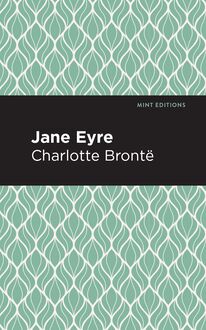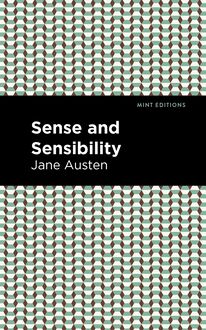-
 Univers
Univers
-
 Ebooks
Ebooks
-
 Livres audio
Livres audio
-
 Presse
Presse
-
 Podcasts
Podcasts
-
 BD
BD
-
 Documents
Documents
-
- Cours
- Révisions
- Ressources pédagogiques
- Sciences de l’éducation
- Manuels scolaires
- Langues
- Travaux de classe
- Annales de BEP
- Etudes supérieures
- Maternelle et primaire
- Fiches de lecture
- Orientation scolaire
- Méthodologie
- Corrigés de devoir
- Annales d’examens et concours
- Annales du bac
- Annales du brevet
- Rapports de stage
La lecture à portée de main

Vous pourrez modifier la taille du texte de cet ouvrage
Découvre YouScribe en t'inscrivant gratuitement
Je m'inscrisDécouvre YouScribe en t'inscrivant gratuitement
Je m'inscrisEn savoir plus
Vous pourrez modifier la taille du texte de cet ouvrage
En savoir plus

Description
Miss Million’s Maid (1913) is a romance novel by Berta Ruck. After a decade of publishing stories in literary magazines, Ruck began releasing romance novels to popular acclaim. Miss Million’s Maid is a satirical tale of love, work, and modern life that continues to entertain over a century after it was written. Beatrice Lovelace longs for a social life. Although she was born into a family of London elites, her family’s fortunes turned to leave Beatrice with next to nothing. Living with her frugal Aunt Anastasia, she hears secondhand of events around town she has no opportunity to see for herself. Her only friend, if she could be called such, is her loyal maid Nellie Million, whose name takes on a brand-new meaning when a distant uncle unexpectedly leaves her a massive fortune. Sensing an opportunity, Beatrice volunteers to work as her maid, making something of herself for the first time in her life. Despite their cordiality and good rapport, the two women soon succumb to the pressures of life in a class they had never experienced. Juggling work and wealth, navigating the ways of men, Nellie and Beatrice learn that money and happiness often refuse to mix. Miss Million’s Maid is a comedy of social life, a story of romance and friendship from one of the twentieth century’s most prolific authors. With a beautifully designed cover and professionally typeset manuscript, this edition of Berta Ruck’s Miss Million’s Maid is a classic of British romance literature reimagined for modern readers.
Sujets
Informations
| Publié par | Mint Editions |
| Date de parution | 21 mai 2021 |
| Nombre de lectures | 0 |
| EAN13 | 9781513287874 |
| Langue | English |
| Poids de l'ouvrage | 1 Mo |
Informations légales : prix de location à la page 0,0500€. Cette information est donnée uniquement à titre indicatif conformément à la législation en vigueur.
Extrait
Miss Million’s Maid
Berta Ruck
Miss Million’s Maid was first published in 1917.
This edition published by Mint Editions 2021.
ISBN 9781513282855 | E-ISBN 9781513287874
Published by Mint Editions®
minteditionbooks.com
Publishing Director: Jennifer Newens
Design & Production: Rachel Lopez Metzger
Project Manager: Micaela Clark
Typesetting: Westchester Publishing Services
C ONTENTS
I . T HE Y OUNG M AN N EXT D OOR
II . T WO G IRLS IN A K ITCHEN
III . A B OLT FROM THE B LUE
IV . T HE L AWYER’S D ILEMMA
V . M ILLION L EAVES HER P LACE
VI . A NOTHER R UMPUS !
VII . M Y D EPARTURE
VIII . I B ECOME M ILLION’S M AID
IX . W E M OVE INTO N EW Q UARTERS
X . A N O RGY OF S HOPPING !
XI . A N O LD F RIEND OF THE F AMILY
XII . T HE D AY OF THE P ARTY
XIII . M Y F IRST “A FTERNOON O UT ”
XIV . C REAM AND C OMPLIMENTS
XV . A D IFFERENT K IND OF P ARTY
XVI . A W ORD OF W ARNING
XVII . R EVELRY BY N IGHT
XVIII . M Y F IRST P ROPOSAL
XIX . W AITING FOR THE R EVELLER
XX . W HERE IS S HE ?
XXI . A N U NEXPECTED I NVASION !
XXII . H ER C OUSIN TO THE R ESCUE
XXIII . I S TART ON THE Q UEST
XXIV . W E S EEK “T HE R EFUGE ”
XXV . F OUND !
XXVI . M ISS M ILLION IN L OVE
XXVII . A N U NUSUAL S ORT OF B EGGAR
XXVIII . T HE C ROWDED H OLIDAY
XXIX . L OCKED U P !
XXX . O UT ON B AIL
XXXI . M ILLION B UCKS U P
XXXII . W ALES F OREVER !
XXXIII . M ISS M ILLION HAS AN I DEA !
XXXIV . T HE F ORTUNES OF W AR
I
T HE Y OUNG M AN N EXT D OOR
My story begins with an incident that is bound to happen some time in any household that boasts—or perhaps deplores—a high-spirited girl of twenty-three in it.
It begins with “a row” about a young man.
My story begins, too, where the first woman’s story began—in a garden.
It was the back garden of our red-roofed villa in that suburban street, Laburnum Grove, Putney, S.W.
Now all those eighty-five neat gardens up and down the leafy road are one exactly like the other, with the same green strip of lawn just not big enough for tennis, the same side borders gay with golden calceolaria, scarlet geranium, blue lobelia, and all the bright easy-to-grow London flowers. All the villas belonging to the gardens seem alike, too, with their green front doors, their white steps, their brightly polished door-knockers and their well-kept curtains.
From the look of these typically English, cheerful, middle-class, not-too-well-off little homes you’d know just the sort of people who live in them. The plump, house-keeping mother, the season-ticket father, the tennis-playing sons, the girls in dainty blouses, who put their little newly whitened shoes to dry on the bathroom window-sill, and who call laughing remarks to each other out of the window.
“I say, Gladys! don’t forget it’s the theatre to-night!”
“Oh, rather not! See you up at the Tennis Club presently?”
“No; I’m meeting Vera to shop and have lunch in Oxford Street.”
“Dissipated rakes! ‘ We don’t have much money, but we do see life ,’ eh?”
Yes! From what I see of them, they do get heaps of fun out of their lives, these young people who make up such a large slice of the population of our great London. There’s laughter and good-fellowship and enjoyment going on all up and down our road.
Except here. No laughter and parties and tennis club appointments at No. 45, where I, Beatrice Lovelace, live with my Aunt Anastasia. No gay times here !
When we came here six years ago (I was eighteen) Aunt Anastasia was rigidly firm about our having absolutely nothing to do with the people of the neighbourhood.
“They are not O UR kind,” she said with her stately, rather thin grey-haired head in the air. “And though we may have come down in the world, we are still Lovelaces, as we were in the old days when your dear grandfather had Lovelace Court. Even if we do seem to have dropped out of O UR world, we need not associate with any other. Better no society than the wrong society.”
So, since “our” world takes no further notice of us, we have no society at all. I can’t tell you how frightfully, increasingly, indescribably dull and lonely it all is!
I simply long for somebody fresh of my own age to talk to. And I see so many of them about here!
“It’s like starving in the midst of plenty,” I said to myself this evening as I was watering the pinks in the side borders. The girls at No. 46, to the right of our garden, were shrieking with laughter together on their lawn over some family joke or other—I listened enviously to their merriment.
I wondered which of them was getting teased, and whether it was the one with my own name, Beatrice—I know some of them by name as well as I know them by sight, the pretty, good-humoured-looking girls who live in this road, the cheery young men! And yet, in all these years, I’ve never been allowed to have a neighbour or an acquaintance. I’ve never exchanged a single—
“Good evening!” said a pleasant, man’s voice into the midst of my reverie.
Startled, I glanced up.
The voice came over the palings between our garden and that of No. 44. Through the green trellis that my aunt had had set up over the palings (“so that we should be more private”) I beheld a gleam of white flannel-clad shoulders and of smooth, fair hair.
It was the young man who’s lately come to live next door.
I’ve always thought he looked rather nice, and rather as if he would like to say good morning or something whenever I’ve met him going by.
I suppose I ought not to have noticed even that? And, of course, according to my upbringing, I ought certainly not to have noticed him now. I ought to have fixed a silent, Medusa-like glare upon the trellis. I ought then to have taken my battered little green watering-can to fill it for the fourteenth time at the scullery-tap. Then I ought to have begun watering the Shirley poppies on the other side of the garden.
But how often the way one’s been brought up contradicts what one feels like doing! And alas! How very often the second factor wins the day!
It won the evening, that time.
I said: “Good evening.”
And I thought that would be the end of it, but no.
The frank and boyish voice (quite as nice a voice as my soldier-brother Reggie’s, far away in India!) took up quite quickly and eagerly: “Er—I say, isn’t it rather a long job watering the garden that way?”
It was, of course. But we couldn’t afford a hose. Why, they cost about thirty shillings.
He said: “Do have the ‘lend’ of our hose to do the rest of them, won’t you?” And thereupon he stretched out a long, white-sleeved arm over the railings and put the end of the hose straight into my hand.
“Oh, thank you; but I will not trouble you. Good evening.”
Of course, that would have been the thing to say, icily, before I walked off.
Unfortunately I only got as far as “Oh, thank you—” And then my fingers must have fumbled the tap on or something. Anyhow, a great spray of water immediately poured forth from out of the hose through the roses and the trellis, right on to the fair head and the face of the young man next door.
“Oh!” I cried, scarlet with embarrassment. “I beg your pardon—”
“It’s quite all right, thanks,” he said. “Most refreshing!”
Here I realised that I was still giving him a shower-bath all the time.
Then we both laughed heartily together. It was the first good laugh I’d had for months! And then I trained the hose off him at last and on to our border, while the young man, watching me from over the palings, said quickly:
“I’ve been wanting to talk to you, do you know? I’ve been wanting to ask—”
Well, I suppose I shall never know now, what he wanted to ask. For that was the moment when there broke upon the peaceful evening air the sound of a voice from the back window of our drawing-room, calling in outraged accents:
“Beatrice! Bee—atrice!”
Immediately all the laughter went out of me.
“Y—yes, Aunt Anastasia,” I called back. In my agitation I dropped the end of the hose on to the ground, where it began irrigating the turf and my four-and-elevenpenny shoes at the same time.
“Beatrice, come in here instantly,” called my aunt in a voice there was no gainsaying.
So, leaving the hose where it lay, and without another glance at the trellis, in I dashed through the French window into our drawing-room.
A queer mixture of a room it is. So like us; so typical of our circumstances! A threadbare carpet and the cheapest bamboo easy-chairs live cheek-by-jowl with a priceless Chippendale cabinet from Lovelace Court, holding a few pieces of china that represent the light of other days. Upon the faded cheap wallpaper there hangs the pride of our home, the Gainsborough portrait of one chestnut-haired, slim-throated ancestress, Lady Anastasia Lovelace, in white muslin and a blue sash, painted on the terrace steps at Lovelace Court.
This was the background to the figure of my Aunt Anastasia, who stood, holding herself as stiff as a poker (she is very nearly as slim, even though she’s fifty-three) in her three-year-old grey alpaca gown with the little eightpence-three-farthings white collar fastened by her pearl brooch with granny’s hair in it.
Her face told me what to expect. A heated flush, and no lips. One of Auntie’s worst tempers!
“Beatrice!” she exclaimed in a low, agitated tone. “I am ashamed of you. I am ashamed of you.” She could not have said it more fervently if I’d been found forging cheques. “After all my care! To see you hobnobbing like a housemaid with these people!”
Aunt Anastasia always mentions the people here as who should say “the worms in the flower-beds” or “the blight upon the rambler-roses.”
“I wasn’t hobnobbing, Auntie,” I defended myself. “Er—he only offered me the hose to—”
“The thinnest of excuses,” put in my aunt, curling what was left visible of her lips. “You need not have taken the hose.”
“He put it right into my hand.”
“Insufferable young bounder,” exclaimed Aunt Anastasia, still more bitterly.
I felt myself flushing hotly.
“Auntie, why do you
Attention
En entrant sur cette page, vous certifiez :
- 1. avoir atteint l'âge légal de majorité de votre pays de résidence.
- 2. avoir pris connaissance du caractère érotique de ce document.
- 3. vous engager à ne pas diffuser le contenu de ce document.
- 4. consulter ce document à titre purement personnel en n'impliquant aucune société ou organisme d'État.
- 5. vous engager à mettre en oeuvre tous les moyens existants à ce jour pour empêcher n'importe quel mineur d'accéder à ce document.
- 6. déclarer n'être choqué(e) par aucun type de sexualité.
YouScribe ne pourra pas être tenu responsable en cas de non-respect des points précédemment énumérés. Bonne lecture !
-
 Univers
Univers
-
 Ebooks
Ebooks
-
 Livres audio
Livres audio
-
 Presse
Presse
-
 Podcasts
Podcasts
-
 BD
BD
-
 Documents
Documents
-
Jeunesse
-
Littérature
-
Ressources professionnelles
-
Santé et bien-être
-
Savoirs
-
Education
-
Loisirs et hobbies
-
Art, musique et cinéma
-
Actualité et débat de société
-
Jeunesse
-
Littérature
-
Ressources professionnelles
-
Santé et bien-être
-
Savoirs
-
Education
-
Loisirs et hobbies
-
Art, musique et cinéma
-
Actualité et débat de société
-
Actualités
-
Lifestyle
-
Presse jeunesse
-
Presse professionnelle
-
Pratique
-
Presse sportive
-
Presse internationale
-
Culture & Médias
-
Action et Aventures
-
Science-fiction et Fantasy
-
Société
-
Jeunesse
-
Littérature
-
Ressources professionnelles
-
Santé et bien-être
-
Savoirs
-
Education
-
Loisirs et hobbies
-
Art, musique et cinéma
-
Actualité et débat de société
- Cours
- Révisions
- Ressources pédagogiques
- Sciences de l’éducation
- Manuels scolaires
- Langues
- Travaux de classe
- Annales de BEP
- Etudes supérieures
- Maternelle et primaire
- Fiches de lecture
- Orientation scolaire
- Méthodologie
- Corrigés de devoir
- Annales d’examens et concours
- Annales du bac
- Annales du brevet
- Rapports de stage











